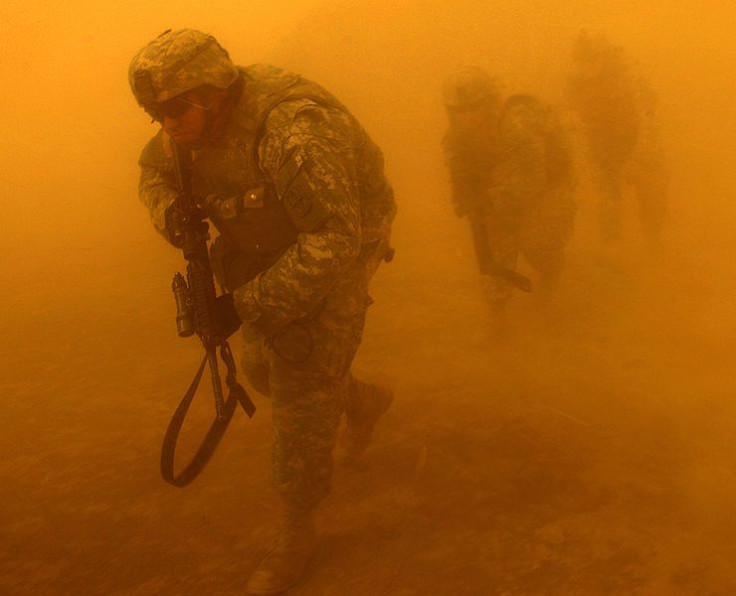Military Suicides, Psychological Symptoms, Linked To Traumatic Brain Injuries

In a windowless room in the E-ring of the Pentagon, military officers and civilian government employees meet at the Army Suicide Prevention Office to discuss prevention efforts for the second leading cause of death among service members. The regulars at the meeting discuss new suicide numbers as well as long-term communication plans in the realm of social marketing, with recent success in lowering the stigma in the military for seeking mental health treatment.
However, the U.S. Army set another record last year with 324 suicides, 183 of whom were on active duty. The death toll superseded the 148 active-duty Army suicides of 2009, the previous high mark. And while most suicides are among enlisted soldiers, the number of deaths had risen among non-commissioned officers during each of the past three years, the Army said in March.
In research published Wednesday in the Journal of the American Medical Association, investigators said higher suicide risk was seen in deployed military personnel who suffered repeated traumatic brain injuries, TBI, which became the signature battle injury of the wars in Iraq and Afghanistan. As many as one in five service members deployed to those war zones may have experienced TBI, from moderate cases to severe.
"Contributing to this heightened suicide risk is the concurrent rise in psychiatric illness among military personnel, especially among those exposed to combat operations," wrote authors Craig J. Bryan and Tracy A. Clemans, of the National Center for Veterans Studies and U.S. Department of Veterans Affairs' Research Education Clinical Center in Denver, respectively. "The risk of posttraumatic stress disorder, depression, and substance abuse is considerably increased among military personnel, with each being known risk factors for suicidal behaviors."
In particular, TBI has been found to be associated in veterans treated by Veterans Affairs centers with significantly elevated risk for suicidal ideation, suicide attempts, and death, especially in combination with psychiatric and substance abuse problems.
In the new study, researchers worked with 157 military personnel and 4 civilian contractors who were treated at a TBI clinic at a combat support hospital in Iraq during a six-month period in 2009. Three-quarters of the men were assessed at the clinic within a week of their injuries, whether coming directly from the battlefield after an explosion or motor vehicle accident or reporting upon recommendation from a clinician after complaining of symptoms. There, the patients underwent standardized neurocognitive testing, psychological and physical health assessments, and clinical examinations by a psychologist and physician.
To examine the possibility that repetitive injury raises suicide risk, the researchers included in their study only those who'd previously been diagnosed with TBI. The study results suggest that military personnel who have sustained the injury on multiple occasions were at greatest risk of suicide.
"In addition," the authors wrote, "the significant interaction of depression severity with number of TBIs suggests that the effects of depression on suicide risk are augmented by cumulative TBIs." The researchers concluded that repetitive injuries to the brain might be a causal factor in suicidal behavior, given that TBI increases impulsivity and emotional distress, which in turn can increase the risk of suicide.
Earlier this month, the Pentagon told Congress that budget cuts from sequestration — the law enacted last year requiring automatic federal cuts in the absence of a bipartisan agreement on the deficit — would not touch funding for research into TBI.
"We are not going to wholesale shift money out of research in these important areas to solve other budgetary problems. We are going to have to find creative ways to solve budgetary problems," Dr. Jonathan Woodson, assistant secretary of defense for health affairs, testified in Congress. Woodson said most of the ongoing research into the condition had already been funded.
Source: C Bryan, T Clemans. Repetitive Traumatic Brain Injury, Psychological Symptoms, and Suicide Risk in a Clinical Sample of Deployed Military Personnel. JAMA Psychiatry.



























